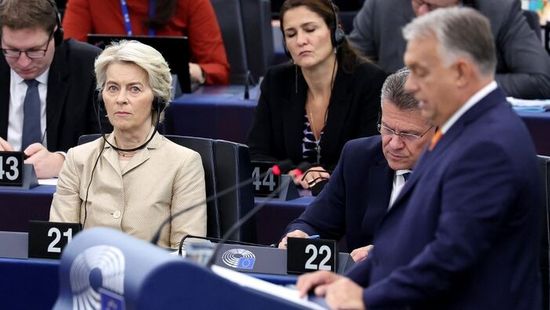Dokumentumok bizonyítják: Brüsszelben arra készülnek, hogy a Fidesz nyeri meg a választást

Az elemző szerint ráadásul az is egyértelmű, miért nem lenne rájuk szükség, ha Magyar Péteréket tartanák esélyesnek.

The system has the potential to squeeze Hungary’s far right out of the political game by allowing smaller minority parties and independent candidates an opportunity to gain seats in the Parliament.
„The rhetoric of the far right is increasingly echoing across the European public sphere. With European Parliament elections fast approaching, there is increasing talk about the likely success and future role the populist far right will play in the EU. (...)
In contrast, Hungary offers a compelling answer to the increasing pressure from these parties.
